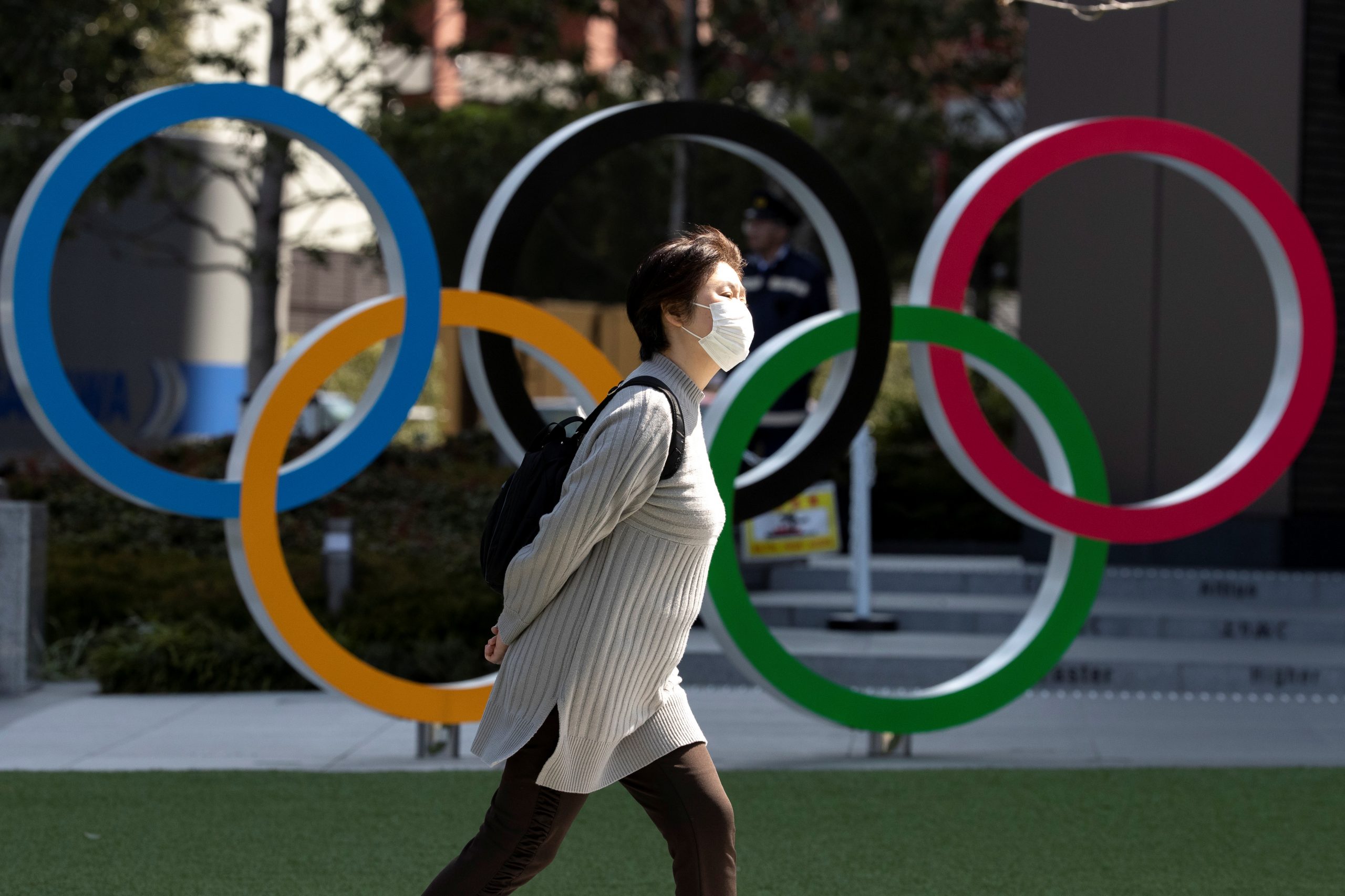Japan on Friday said it was determined to hold a “safe and secure” Tokyo Olympics on schedule, after U.S. President Donald Trump suggested a one year delay because of the coronavirus pandemic.
Lawmakers later granted Japanese Prime Minister Shinzo Abe emergency powers to close schools and halt large gatherings. His economy minister also pledged “bold and unprecedented steps” to lessen economic fallout as financial market panic pushed the Nikkei <.n225> stock market benchmark 6.1 percent lower.
Abe and Trump talked by phone for about 50 minutes Friday morning, agreeing to “strengthen cooperation” on fighting the novel coronavirus, but did not discuss postponing the Olympics or holding them without spectators, Japanese officials said.
After the call, Trump tweeted that he told Abe “that the just completed Olympic venue is magnificent. He has done an incredible job, one that will make him very proud. Good things will happen for Japan and their great Prime Minister. Lots of options!”
On Thursday, Trump told reporters in the White House that he “just can’t see having no people there,” referring to the Tokyo Games. “I think if you cancel it, make it a year later that’s a better alternative than doing it with no crowd.”
In response, Japan Olympic minister Seiko Hashimoto told reporters, “the IOC and 2020 organisers are not at all considering cancelling or postponing the Games. I’ve heard they are proceeding with preparations for safe and secure Games as planned toward the opening day of July 24.”
The IOC stands for the International Olympic Committee.
There were 1,387 confirmed infections in Japan, including 697 from a cruise ship that was docked in the port city of Yokohama for several weeks, according to public broadcaster NHK. By Friday morning, the virus had killed 26 in the country, including 7 from the ship, the tally showed.
Japan has sought to quash speculation that the games, which have cost it at least $12 billion in preparations and attracted more than $3 billion in domestic sponsorships, could be canceled or postponed as the number of people infected has reached 127,000 worldwide.
The outbreak has already crippled global travel and hit Olympic qualifiers and other sports events. Japan has shuttered schools. Public health officials have discouraged large gatherings to curtail the spread of the highly contagious disease, and major soccer tournaments, National Basketball Association games and other sports have been halted.
With travel demand shrinking, Japanese airline ANA Holdings Inc <9202.T> said it will reduce flights to North America and Europe. Rival Japan Airlines Co. <9201.T> plans to slash 1,468 domestic flights this month.
The Tokyo 2020 organizing committee said it was monitoring the pandemic with the IOC, receiving advice from the World Health Organization, and coordinating with the government and the Tokyo authorities.
Japan’s government and the central bank shared a “strong sense of concern” over how the virus could affect the games. A sponsor representative said the plans were confidential and were not being shared with the companies.
Tokyo 2020 chief Yoshiro Mori vehemently denied the games would be canceled, but added at news conference in the wake of Takahashi’s comments, “I am not saying there won’t be any impact. I think there will be. On that, specialists in each field are looking into what to do.”On Thursday, the prelude to the games got underway with the lighting of the Olympic Torch in a scaled-down ceremony behind closed doors.
(Reporting by Tokyo bureau; Writing by Antoni Slodkowski; Editing by Richard Pullin, Lincoln Feast, Gerry Doyle and Peter Graff)

























 Continue with Google
Continue with Google